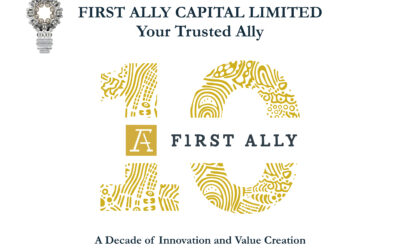What Are the Types of Investments in Nigeria?
Investing in Nigeria offers a wide array of opportunities that cater to different risk appetites and financial goals. Whether you are looking to preserve wealth, generate steady income, or achieve capital growth, understanding the types of investments available is crucial. In this article, we equip you with the knowledge to navigate the investment landscape in Nigeria, exploring various investment vehicles and their key characteristics.
1. Real Estate: Owning a Piece of the Future
Real estate remains a cornerstone of Nigerian investment strategies due to its potential for capital appreciation and rental income generation. Options range from residential to commercial properties, including land, houses, apartments, and office spaces.
- Benefits:
- High return on investment (ROI) potential.
- Provides a steady stream of rental income.
- A tangible asset with long-term value appreciation.
- Considerations:
- Requires significant upfront capital.
- Market fluctuations can impact property values.
- Responsibilities of property maintenance and management.
2. Stocks & Equities: Sharing the Success of Companies
The Nigerian Stock Exchange (NSE) serves as a platform for trading shares of publicly listed companies. Investing in stocks allows individuals to become part-owners, potentially benefiting from a company’s growth and profitability.
- Benefits:
- High potential returns through capital gains and dividends.
- High liquidity — stocks can be readily bought and sold.
- Opportunities for portfolio diversification.
- Considerations:
- High market volatility and risk of loss.
- Requires knowledge of the stock market and individual company performance.
- The market is susceptible to economic and political factors.
3. Fixed Income Securities: Stable Returns with Lower Risk
Fixed-income instruments include government bonds, treasury bills, and corporate bonds. Investors essentially lend money to the government or a corporation in exchange for periodic interest payments and the return of the principal amount upon maturity.
- Benefits:
- Predictable income through regular interest payments.
- Lower risk compared to equities.
- Government bonds are generally considered safe investments.
- Considerations:
- Lower returns compared to equities.
- Interest rate risk — bond prices fall when interest rates rise.
- Inflation can erode the purchasing power of fixed returns.
4. Mutual Funds: Professional Management for Diversified Portfolios
Mutual funds pool funds from multiple investors and invest them in a diversified portfolio of assets like stocks, bonds, or other securities. Professional fund managers oversee these investments, making them suitable for those seeking a hands-off approach.
- Benefits:
- Reduced risk through diversification.
- Expert management by experienced professionals.
- Variety of fund options to suit risk tolerance and investment goals.
- Considerations:
- Management fees and other associated costs.
- Returns depend on the underlying assets’ performance.
- Less control over individual investment choices.
5. Savings Accounts & Fixed Deposits: Safe Havens for Your Money
Traditional savings accounts and fixed deposit accounts offered by Nigerian banks provide a secure avenue to store money while earning interest. Fixed deposits typically offer higher interest rates in exchange for locking in the funds for a predetermined period.
- Benefits:
- Low risk and capital preservation.
- Easy access to funds (savings accounts).
- Guaranteed returns (fixed deposits).
- Considerations:
- Low returns compared to other investment options.
- Limited liquidity with fixed deposits due to lock-in periods.
- Interest earned may not keep pace with inflation.
6. Agricultural Investments: Cultivating Returns from the Land
Nigeria’s robust agricultural sector offers investment opportunities in farming, agribusiness, and allied industries. Investment approaches can be direct (owning and operating farms) or indirect (investing in agribusiness companies or schemes).
- Benefits:
- High demand for agricultural products.
- Potential for substantial returns.
- Contributes to food security and economic development.
- Considerations:
- Weather and climate risks can affect yields.
- Requires knowledge of agricultural practices and management.
- Market and price fluctuations can impact profitability.
7. Cryptocurrencies: A High-Risk, High-Reward Frontier
Cryptocurrencies like Bitcoin and Ethereum have emerged as alternative investment options. These digital assets utilise blockchain technology for secure and decentralised transactions.
- Benefits:
- Potential for significant returns.
- High liquidity through cryptocurrency exchanges.
- Diversification into a new asset class.
- Considerations:
- Extremely volatile market with a high risk of loss.
- Uncertain regulatory environment in Nigeria.
- Requires a strong understanding of cryptocurrency technology and markets.
Investing in Nigeria offers something for everyone. Choosing investments that align with your financial goals and risk tolerance is important. Diversifying your portfolio can help balance risks and rewards. If unsure, consider talking to a financial advisor for personalised advice. Happy investing.



